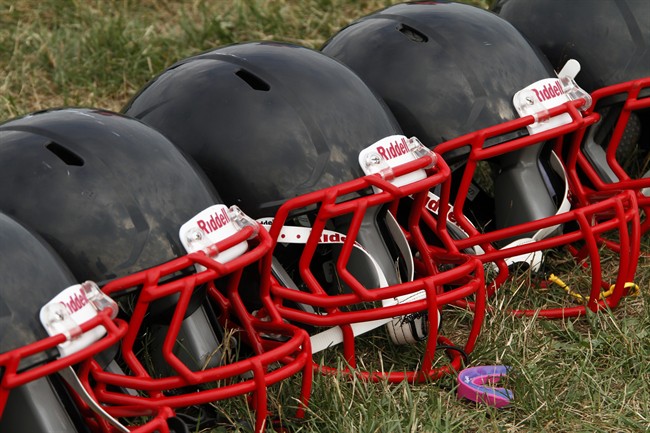CHICAGO – A small study of college football players found that the areas of their brains that control memory were smaller than average, especially if they had suffered concussions. But more research is needed to determine if the differences mean they’re headed for problems down the road.

The study of NCAA players is only preliminary, but the differences were seen in a part of the brain affected by a destructive disease linked with head blows and found in autopsies of some former NFL players.
The college players studied did just as well on tests of mental function, including memory, as a healthy control group of college athletes in non-contact sports, although those in the football group who’d played the longest had slower reaction times.
READ MORE: Pull athletes showing signs of concussion, updated guidelines warn
It’s unknown when the brain differences occurred and it’s possible the football players were born with them, said study co-author Patrick Bellgowan, a neuroscientist at the Laureate Institute for Brain Research in Tulsa, Oklahoma.
Still, because head trauma is among conditions thought to cause the affected brain region to shrink, the study results are “a flag that concussions need to be taken seriously,” Bellgowan said.
READ MORE: Even without concussion, head injuries still affect learning, memory, study warns
The differences were found in the hippocampus, a small sea horse-shaped region behind the front part of the brain. In football players who’d had concussions, the right part of the hippocampus was 26 per cent smaller on average than in the control group. In football players without concussions, it was 17 per cent smaller. Similar differences were seen in the left part of the hippocampus.
The study involved 25 Division 1 football players and 25 college athletes in non-contact sports including long-distance running. Results were released Tuesday in the Journal of the American Medical Association.
Dr. Jeffrey Kutcher, a University of Michigan sports neurologist, said the research is intriguing but that more work needs to be done
—
Online:
JAMA: http://www.jama.com



Comments